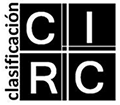El proyecto de un constitucionalismo global como alternativa realista a un futuro de catástrofes
Conferencia pronunciada por el Padrino de la promoción anual de la Facultad de Derecho el día de la festividad de San Raimundo de Peñafort
DOI:
https://doi.org/10.18002/rjule.i12.8569Palavras-chave:
Constitución, Derechos fundamentales, Derechos sociales, Instituciones, Derechos humanosResumo
Los problemas más importantes a los que se enfrenta la humanidad son de carácter global: el calentamiento del planeta, las amenazas a la paz mundial, el aumento de las desigualdades, la falta de agua potable, de alimentos básicos y de medicamentos esenciales, o las masas de emigrantes que huyen de la miseria y la degradación de sus países. Estas tragedias no son fenómenos naturales ni simples injusticias; al contrario, son violaciones masivas de los derechos fundamentales reconocidos en las distintas cartas constitucionales en vigor, tanto nacionales como supranacionales. La humanidad se encuentra hoy en una encrucijada histórica, seguramente la más dramática y decisiva: o sufrir y sucumbir a las múltiples catástrofes y emergencias globales, o hacerles frente, contrarrestándolas con la construcción de garantías constitucionales a escala planetaria, diseñadas por la razón jurídica y política. Sólo una Constitución de la Tierra que introduzca un dominio planetario para la protección de los bienes vitales de la naturaleza, prohíba todas las armas como bienes ilícitos, empezando por las armas nucleares, e introduzca un tesoro global e instituciones adecuadas para garantizar la defensa de los derechos de libertad y la aplicación de los derechos sociales, puede hacer realidad el universalismo de los derechos humanos. El proyecto de una Constitución de la Tierra no es una hipótesis utópica, sino la única respuesta racional y realista capaz de limitar los poderes salvajes de los Estados y de los mercados en beneficio de la habitabilidad del planeta y de la supervivencia de la humanidad
Downloads
Downloads
Publicado
Como Citar
Edição
Secção
Licença

Este trabalho encontra-se publicado com a Licença Internacional Creative Commons Atribuição-NãoComercial-CompartilhaIgual 4.0.
Los autores que publican en esta revista están de acuerdo con los siguientes términos:- Los autores ceden de forma no exclusiva los derechos de explotación (reproducción, distribución, comunicación pública, transformación) a la Universidad de León, por lo que pueden establecer, por separado, acuerdos adicionales para la distribución no exclusiva de la versión de la obra publicada en la revista (por ejemplo, alojarlo en un repositorio institucional o publicarlo en un libro), con un reconocimiento de su publicación inicial en esta revista.
- Este trabajo se encuentra bajo la Creative Commons Attribution-NonCommercial-ShareAlike 4.0 International License. Puede consultarse desde aquí la versión informativa y el texto legal de la licencia.
- Se permite y se anima a los autores a difundir electrónicamente las versiones pre-print (versión antes de ser evaluada) y/o post-print (versión evaluada y aceptada para su publicación) de sus obras antes de su publicación, ya que favorece su circulación y difusión más temprana y con ello un posible aumento en su citación y alcance entre la comunidad académica.








